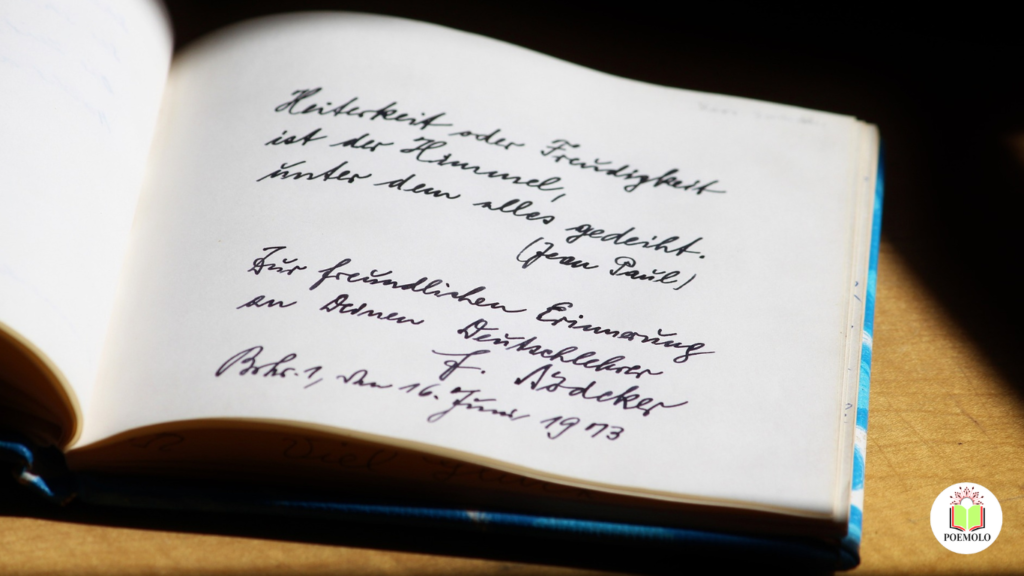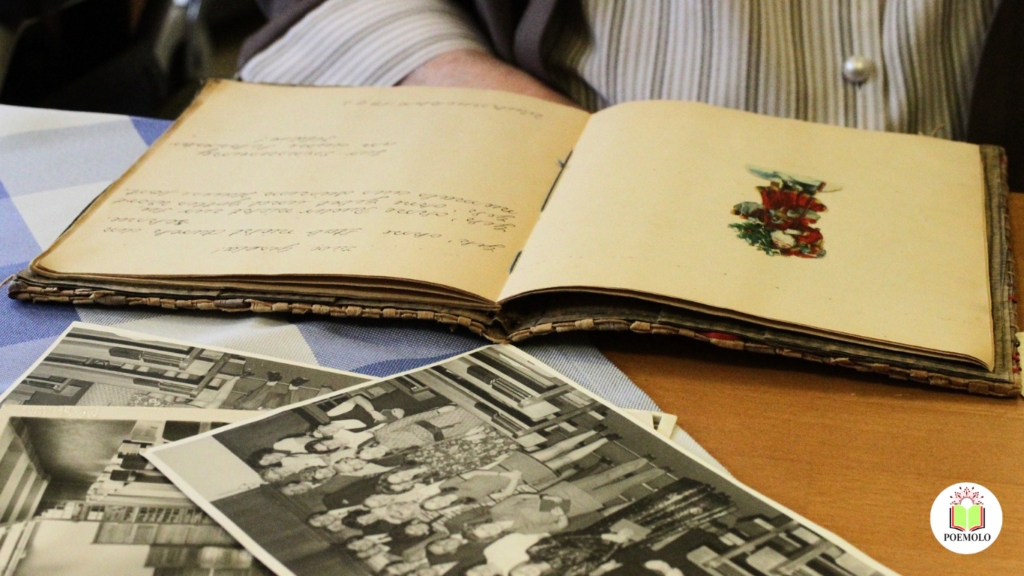Langston Hughes is one of the most powerful American poets, famous for his deep and thought-impassion works that reflect the African American experience.
Over the years, Langston Hughes has given the world an incredible range of poetry that touches on themes of identity, race, social justice, and the human spirit. His style is known for its clarity, rhythmic flow, and powerful use of all language.
In this post, I will explore the themes in Hughes’ poems, particularly focusing on his luck, lyrics, and works that reflect the spirit of America.
We’ll also answer some common questions joined his poetry and discuss his famous free verse poems, sonnets, and the ever-popular “I, Too.” I have been writing content for 8+ years, and I hope you will like my article as well.
Which is the Strongest Poem of Hughes?

Definitely one of Langston Hughes’ strongest pieces is the poem titled, “The Negro Speaks of Rivers.” This poem is best renowned for its metaphysical and chronological features. It was composed, literally, when Hughes was only seventeen, and it provides a luminous alloy of African American history with the ages of the four ancient rivers – as symbols of perseverance.
‘’The Negro Speaks of Rivers’’ was poets and writers inspired by a train that she was on which crossed the Mississippi River. Hughes wrote it on a packet of an envelope complete with emotions of the African American history. This principle remains relevant today because it connects a group experience to a few lines and enables a society to move forward.
I, Too By Langston Hughes
I, too, sing America.
I am the darker brother.
They send me to eat in the kitchen
When company comes,
But I laugh,
And eat well,
And grow strong.
Tomorrow,
I‘ll be at the table
When company comes.
Nobody’ll dare
Say to me,
“Eat in the kitchen,”
Then.
Besides,
They’ll see how beautiful I am
And be ashamed—
I, too, am America.
Analysis of “I, Too” by Langston Hughes
| Element | Explanation |
|---|---|
| Title of Poem | I, Too |
| Written By | Langston Hughes |
| Date Written | 1926 |
| Key Themes | Racial Equality, Hope, Perseverance, Dignity, The Future of Equality |
| Symbolism of “Table” | Represents inclusion, equality, and respect. The “table” is a metaphor for the space Black people were denied in society. It symbolizes a future where African Americans are not marginalized. |
| Tone | Optimistic, Defiant, Hopeful |
| Imagery | The imagery of being sent to the kitchen contrasts with the hope of being at the table. |
| Message | The poem conveys that despite current marginalization, Black people will be seen as equal and will take their rightful place in society. |
| Form/Structure | The poem is written in free verse, with no specific rhyme scheme, reflecting Hughes’ style of accessible and powerful poetry. |
| Key Lines | “Tomorrow, I’ll be at the table / When company comes” – Expressing hope for a future of inclusion. |
| Historical Context | The poem was written during the Harlem Renaissance, a time of cultural flourishing for African Americans but also during a period of deep racial segregation. |
Problem
Many readers find themselves disconnected from the rich and diverse world of poetry. They struggle to find poetry that speaks to them, touches their soul, or resonates with their experiences. This disconnect often leads to poetry being perceived as inaccessible or irrelevant.
Agitation
Imagine being able to dive into a world of words that not only reflect your own struggles and aspirations but also offer a window into the lives of others. Think about the power of reading a poem that perfectly captures the essence of what you’re feeling or experiencing. The frustration of finding such a connection in modern poetry can be overwhelming, making one feel isolated and unheard.
Solution
Langston Hughes’ poetry stands as a beacon for those seeking connection and understanding. His works are not just poems; they are lyrical narratives that echo the voices of the marginalized, the hopeful, and the resilient. Whether you’re new to Hughes’ poetry or revisiting his works, there’s always something new to discover and connect with.
Hughes’ Free Verse Poems

Free verse through which the poem by Langston Hughes is written makes the author free from strict stiction of constructed poetics. Among many of Hughes’ free verse poems, the poem often referred to as “Harlem,” or “A Dream Deferred” is highly significant. Indeed, this poem paints a clear picture of the end result of procrastination in as much as it paints a picture of the dream.
Another example of Hughes’ is a poem “Mother to Son,” where the poet conveys rather despaired experience of an African American mother in rather colloquial language. Even though there is no set rhyme scheme or meter to these poems it allows the poems to feel very real and true to life, and ultimately making Hughes’ messages that much more effective.
LANGSTON HUGHES’ FREE VERSE POEMS
If you think Harlem renaissance is old history, you should learn more about Langston Hughes who was a great poet in the realm of free verse poetry. This made his poetry more popular than that of formal poets to write emotions and ideas politically and not bound by structures of meter .
Frees Some critics no credit Hughes with having played a role in the creation of the free verse tradition in American poetry.
Some of his most well-known pieces are in free verse, one of which includes “The Negro Speaks of Rivers.” This poem is a Hughes’ masterpiece where he links thousands of years of black people’s history with the timeless rivers.
The poem starts with the lines: “I’ve known rivers: I have known rivers young and old/ I’ve known rivers strong and rivers young, and the strong and the young, and the rivers run through the dwelling place of men, rise up, rise up, lines of Rivers. exchange of human blood in human veins.”
Langston Hughes Sonnet
Although Hughes is most popular for his acite work and poems that contained lots of music, Hughes himself tried out different forms such as sonnets. He wrote a poem which is now counted as one of his best with the title of the poem named “Harlem Sweeties” in which he has composed poetry in the praise of Black women of Harlem.
As in this work, “Harlem Sweeties”, Hughes sets out to present the readers with a picture of the jubilant people of Harlem. A complex and detailed structure also increases the overall rhythm and musicality of the poem, and once again proves the excellent versatility of Hughes.
References:
Hughes, Langston. “The Negro Speaks of Rivers.” The Star – Touched by the Magic, a poem by Robert Hayden, located at Berry & Cheese Division Departments AB 211 ed. by Alessandra Birkett Passaic.
Hughes, Langston. “Harlem.” The Collected Poems of Langston Hughes by Hughes Langston edited by Ram Persad Arnold, published by Vintage Classics, first published in 1994.
Hughes, Langston. ‘‘Let America Be America Again.’’ Langston Hughes collected poems editing by Arnold Ram Persad Vintage classics 1994.
Hughes, Langston. “I, Too.” Langston Hughes: The collected poems of Langston Hughes. Edited by Arnold Ram Persad. Vintage classics, 1994.
Hughes, Langston. “Harlem Sweeties.” As we have seen from reading The Collected Poems of Langston Hughes, edited by Arnold Ram Persad, Vintage Classics, 1994.
Conclusion
All of Langston Hughes’ poems whether in free verse, sonnets or otherwise are a true blend of humanities work which are still popular to this generation. Hence, his texts that deal with race, ethnic identity, and experience in America offer long-needed insights into the aspirations and achievements of the Afri- can Americans of the twentieth century.
In “I, Too,” “Let America Be America Again” and “The Negro Speaks of Rivers” Hughes gives an insight of black life in America and he urges for the country to be what it promises; Free.
It is my honor to share the insights regarding Langston Hughes’ poetry with whoever has not acquainted with his works yet and give the heads up to the readers for diving into his opus magnum.
Whether you read literature, literature student, poetry lover or social justice advocate or equal seeking knowledgeable language; Langston Hughes poetry brings relevant teachings and motivation today.
To all the readers who went to the trouble of reading my article, I greatly appreciate it. I genuinely thank you for the kind support you have shown and the interest you have shown in the topic. Your comments encourage me and make me want to prepare more posts to help and inspire others.
I hope you enjoyed reading the article and you got all the information you wanted and I promise to bring you more article as soon as possible. Your comments are blessed!